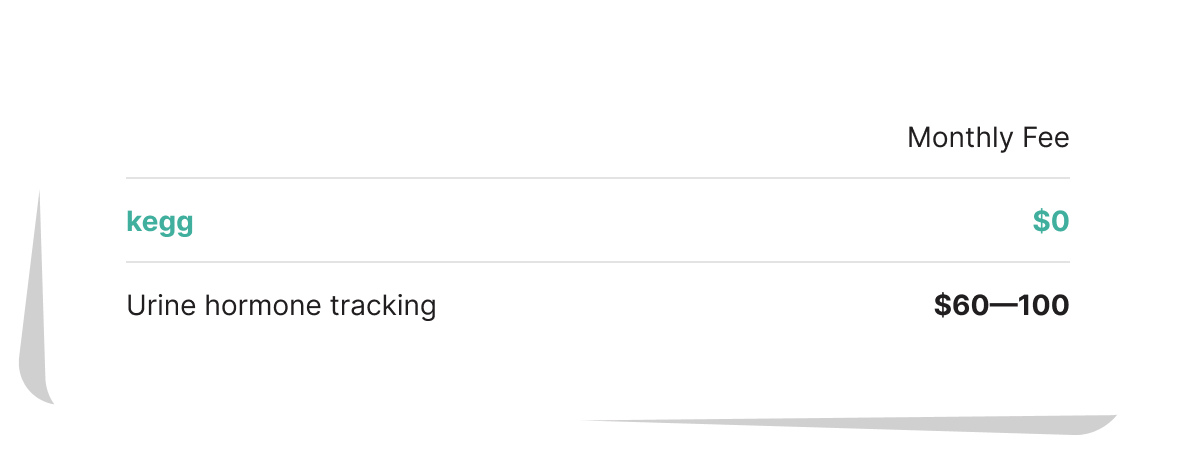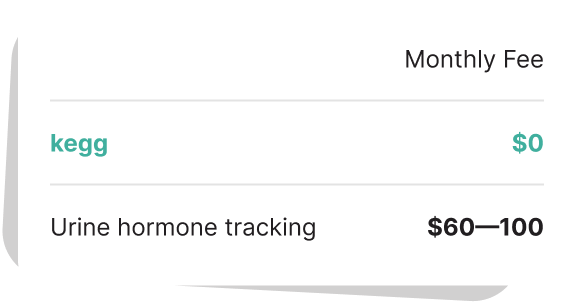Optimize your fertility tracking with PCOS using kegg
Tracking your fertile days with PCOS can feel impossible, but kegg makes it simple. By analyzing your cervical mucus, kegg provides personalized insights into your fertility, helping you increase your chances of success and take control of your fertility.

How does kegg work with PCOS?
- kegg tracks the source of your fertility, cervical mucus demonstrating real-time changes in your fertility
- Cervical mucus tracking allows for optimal timing throughout your fertile days even if your cycles are irregular
- Unlike traditional methods, kegg’s cervical mucus tracking technology identifies all of your fertile days
- Save money compared to other methods as kegg has no recurring fees or costs
- Money-back pregnancy guarantee ensures kegg works for you or you will be entitled to a full refund.
Fertility Tracking Made Affordable
Cycle lengths tend to vary in PCOS, but fertility tracking should not cost you more because of this. As a one-time investment, kegg allows you to track cycles indefinitely for year (and babies) to come for one low cost—no recurring costs, subscriptions, or disposable wands and strips.


Key features
Hear how kegg’s insights helped these women with PCOS realize their dreams
PRICE COMPARISON
Easier. Cheaper. Better.
See how kegg stands out against other fertility tracking methods.
Swipe for comparison
